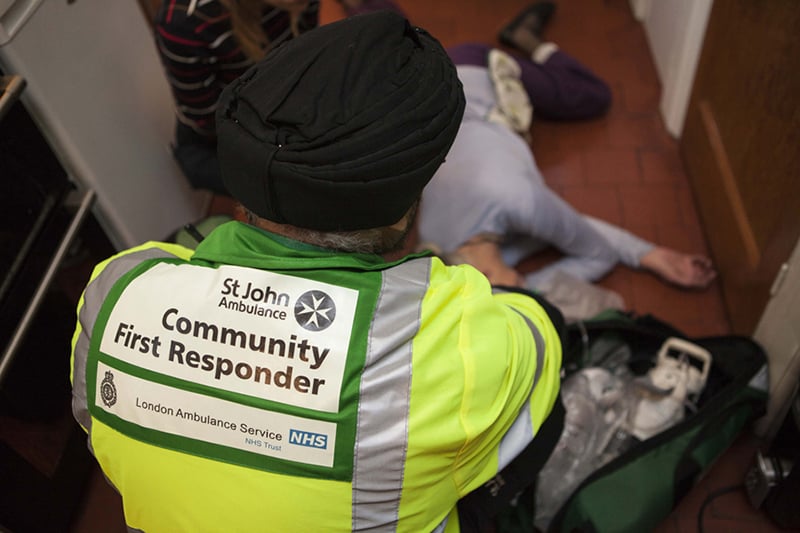What does a Community First Responder do
Working with the NHS, we respond to emergency 999 calls through our Community First Responders.
Community First Responders are volunteers who operate as part of a rota system from their own home or place of work. They are dispatched at the same time as a NHS ambulance via ambulance control to attend Category A 'immediately life-threatening' calls.
These calls can include:
• cardiac arrest
• diabetic emergency
• unresponsive patient
• breathing difficulties
• seizures
Our Community First Responders are trained to:
- assess the situation
- provide immediate first aid
- establish the patient’s previous medical history.
They carry basic first aid equipment, automated external defibrillators (AEDs), and are trained and equipped to provide oxygen therapy.
Sometimes they can simply be a very vital second pair of hands to an ambulance crew when they arrive. It can take eight minutes for an ambulance to arrive but a cardiac arrest victim needs a defibrillator within three minutes for the best chance of survival.

We have hundreds of trained Community First Responders around the country. Operating as a community partnership between St John Ambulance and local ambulance service trusts.
Having someone in the community who has been trained in first aid and can reach the patient quickly makes all the difference.


